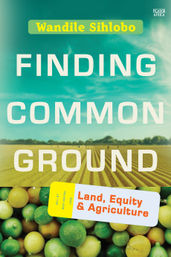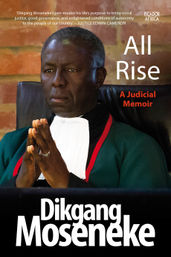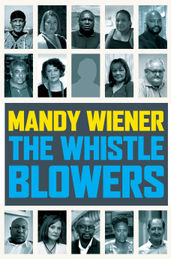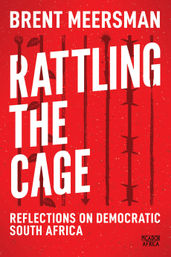Commemorate the 45th anniversary of Youth Day with these seminal and critically acclaimed books
This year marks the 45th anniversary of the Soweto Uprisings, commemorated every year in South Africa on June 16 as Youth Day.

A momentous day that will forever shape our history and how generations of young people respond to social injustice, inequality and many problems affecting the country today. Actions of the youth of 1976 have inspired and empowered today’s youth to stand up against problems that plague our society from government accountability to free higher education, climate change and most recently the high youth unemployment rate and lack of economic opportunities.
We've curated a list of seminal and critically acclaimed books from our local authors that speak to current affairs affecting young South Africans. From Wandile Sihlobo’s Finding Common Ground to Judge Dikgang Moseneke’s All Rise and Brent Meersman’s Rattling the Cage, these books can be read as a guiding light on how to navigate these issues, create viable opportunities and move the country forward.
Closing the Gap
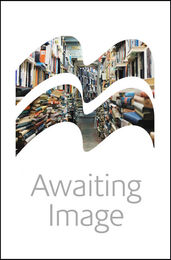
“Unemployment is a scourge in Africa. As we talk of the gig economy and the future of work, we have to look at how this plays out on the continent. While Africa has the youngest population, with 200 million people aged between 15 and 24, it also boasts a disheartening unemployment rate. Based on data from the African Development Bank (AfDB), the continent is faced with the challenge of having to create twelve million additional jobs, with youth unemployment sitting uncomfortably at 60%.” – Professor Tshilidzi Marwala
Closing the Gap is an accessible overview of the fourth industrial revolution (4IR) and the impact it is set to have on various sectors in South Africa and Africa. It explores the previous industrial revolutions that have led up to this point and outlines South Africa’s position been through each one. Written from an African perspective and with a focus on artificial intelligence as a core concept in understanding the 4IR, Professor Tshilidzi Marwala uses familiar concepts to explain artificial intelligence, how it works and how it can be used in banking, mining, medicine and many other fields.
YouTube | Business Maverick Associate Editor Sasha Planting discusses Closing the Gap and The Fourth Industrial Revolution in Africa with Professor Tshilidzi Marwala | WATCH HERE
Finding Common Ground
by Wandile Sihlobo
"These are matters that needs serious engagement because South African farmers are ageing and unemployment is the highest among young people. If the government truly considers agriculture to be a sector that can drive development and job creation in the rural areas, as I believe it can, then the involvement of youth and women needs to be at the centre of planning and discussion. There is growing momentum in discussions about the need to attract the youth to the agricultural sector, and this discussion needs to be held in conjunction with initiatives to diversify the sector and ensure participation by women." – Wandile Sihlobo
Finding Common Ground is a selection of key articles from Sihlobo’s regular Business Day column, framed with insightful commentary and context. The book covers the broad themes that have marked current discussions and outlines the challenges and opportunities faced by South Africa’s agricultural sector including the urgent need for agricultural policy to address gender equity and youth involvement. Ultimately, Sihlobo is optimistic about the future of South Africa’s agricultural sector and shows us all – from policymakers to the general public – how much common ground we truly have.
NewFrame | An extract: Women deserve more credit in farming | READ HERE
All Rise
by Dikgang Moseneke
“This judicial memoir would not have been possible if I had not been privileged by my country to serve its people as a servant of the public. Perforce, I dedicate this memoir to all the people of our land and of Africa who deserve respect, freedom and social justice, absent which, I pray, they will know and will revolt so that they All Rise.” – Judge Dikgang Moseneke
All Rise covers Justice Dikgang Moseneke's years on the bench, with particular focus on his 15-year term as a judge at South Africa’s apex court, the Constitutional Court, including as the deputy chief justice. As a member of the team that drafted the interim Constitution, Moseneke was well placed to become one of the guardians of its final form. His insights into the Constitutional Court’s structures, the personalities peopling it, the values it embodies, the human dramas that shook it and the cases that were brought to it make for fascinating reading. All Rise offers a unique, insider’s view of how the judicial system operates at its best and how it responds when it is under fire.
YouTube | Justice Moseneke discusses his judicial memoir, a follow-up to his bestselling memoir, My Own Liberator | WATCH HERE
The Whistleblowers
by Mandy Wiener
"I wanted to tell these stories and ensure that they are recorded for posterity. I wanted to remind us all about the humanity behind them and of the great debt we as so many owe so few. Perhaps it will change the culture of the country and how whistleblowers are perceived. Instead of being labelled impimpis, snitches and traitors, maybe whistleblowers will be celebrated as the heroes they are. That is my hope." - Mandy Wiener
With corruption and fraud endemic in democratic South Africa, whistleblowers have played a pivotal role in bringing wrongdoing to light. They have provided an invaluable service to society through disclosures about cover-ups, malfeasance and wrongdoing. Their courageous acts have resulted in the recovery of millions of rands to the fiscus and to their fellow citizens as well as improved transparency and accountability for office bearers and politicians. Released in 2020, The Whistleblowers shines a light on the plight of whistleblowers advocating for a change in legislation, organisational support and social attitudes in order to embolden more potential whistleblowers to have the courage to speak out. Their status as whistleblowers is sometimes contentious – this book delves into whether they deserve the status or whether they were, in fact, complicit in the wrongdoing they claimed to expose.
YouTube | Mandy Wiener introduces her new book, The Whistleblowers | WATCH HERE
Rattling the Cage
by Brent Meersman
"My guiding light is the Constitution of South Africa. I am proud of it. Just the writing of it, which involved huge public participation, was an extraordinary achievement for the country." - Brent Meersman
Most South Africans have strong views on our past and present, often based on how we have been personally affected by history, and an understanding of the challenges that face us as a country. But how well-examined and solid are these positions? Have your views been properly thought through? Are you correctly informed? Do you even have the facts straight? Rattling the Cage takes the reader on an informed tour of the South African reality: from the highs and lows, the successes and failures, FW de Klerk’s gaffes to Fees Must Fall, the Oscar Pistorius trial, the 2010 FIFA World Cup, triple BEE, global warming, the Covid-19 pandemic, gay rights in Africa, and veganism. Brent Meersman has a long career in journalism and has been the Co-editor of the Human Rights Focus Agency, Groundup News for more than six years and also Chairperson of Cape Town Press Club. In the book, Meersman writes about the youth’s disillusion with democracy, identity politics, universities in jeopardy and the #MustFall movements.
YouTube | Brent Meersman introduces his new book, Rattling the Cage and reflections on democratic South Africa | WATCH HERE
